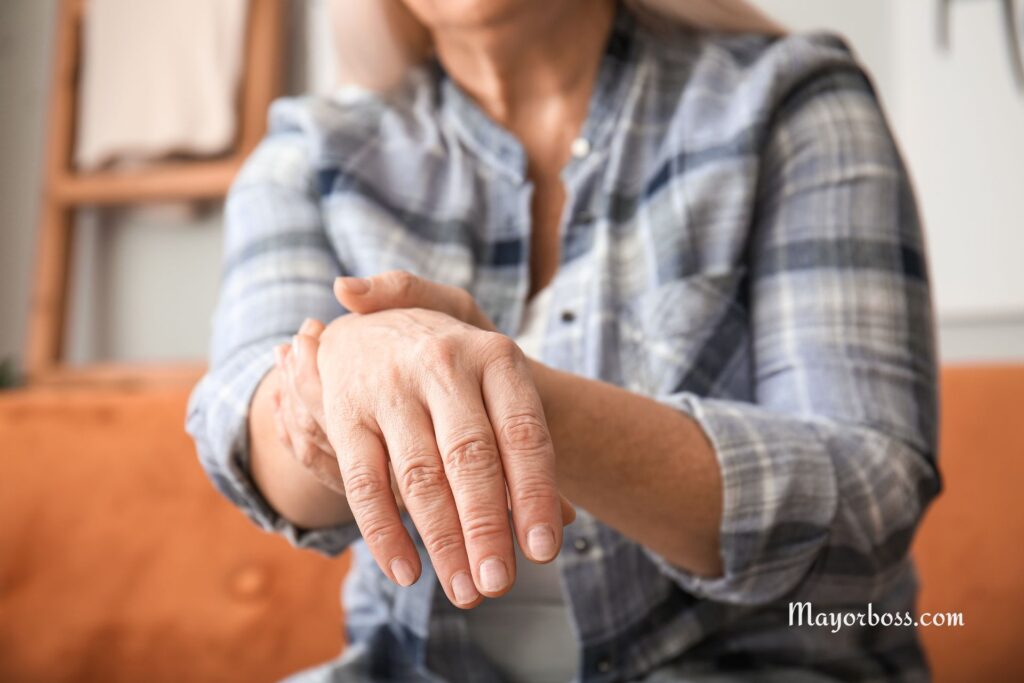These are the early symptoms of Parkinson’s disease
Parkinson’s disease is a brain disorder that makes it harder to move. It usually starts slowly and can be overlooked if the signs are mild. Parkinson’s disease symptoms can be different per person. Knowing early symptoms can help you get medical help sooner and plan care. In this article, we will talk about common early signs of Parkinson’s.

Mild Tremors
A tremor is one of the best-known signs of Parkinson’s disease. Early on, you might notice a slight shaking in your hand or finger when it is resting. It may look like small back-and-forth movements. Some people ignore these twitches, but if they continue, they could be a warning sign.
Slowed Movements
Someone with Parkinson’s often moves more slowly than before. This is called bradykinesia. You might take longer to do everyday tasks like getting dressed or walking. Your steps might be shorter, and you may feel stiff or have trouble moving smoothly. These problems can make daily tasks harder.
Changes in Handwriting
Some people notice their handwriting becomes smaller or more cramped. This is known as micrographia. It happens because fine motor skills slow down. You might see your letters bunch up, making them harder to read. If you see a sudden change in your handwriting, it could be an early sign.
Stiff Muscles and Rigidity
Muscles can feel stiff even if you are not moving. This tightness can limit how far you can move your arms or legs. When combined with slower movements, it can also cause soreness or pain. Simple tasks like stretching might feel more tiring.

Loss of Smell
Some people with Parkinson’s disease notice they have a harder time smelling certain odors, like coffee or strong perfumes. This reduced sense of smell is sometimes overlooked. But if it does not improve, it might point to a bigger issue.
Sleep Problems
Early in Parkinson’s, many people have trouble sleeping. You might have insomnia, vivid dreams, or move a lot during your sleep. Restless legs or sudden jerks can also happen. Over time, lack of good sleep can affect your energy and mood during the day.
Changes in Facial Expression
Another early sign is a lack of expression on the face. People may call this a “masked face.” You might blink less often or show fewer emotions. Loved ones may notice you seem distant or sad, even if you feel normal.
Voice Changes
Parkinson’s can make your voice softer or flatter. People might say you sound hoarse or that you speak at a lower volume. You could find it harder for others to hear you in a crowded room. Over time, this can make it more difficult to socialize.
Posture Changes
Some people with Parkinson’s start to stoop or hunch their shoulders. They might not swing their arms when they walk, which can reduce balance. If you notice such changes in posture that last for a while, it could be worth talking to a doctor.
Mood and Cognitive Changes
Early on, Parkinson’s can cause mood changes like depression or anxiety. Some people also have mild memory problems, such as misplacing items. While these issues might be small at first, they can become more noticeable later.
When to Seek Medical Help

If you see these signs—tremors, slowed movement, stiffness, loss of smell, or speech troubles—talk to your doctor. They will do a medical exam and might order tests to rule out other causes. Getting help early can slow the disease and improve the quality of life. Treatment may include medicines that help replace dopamine, a chemical that supports normal movement.
